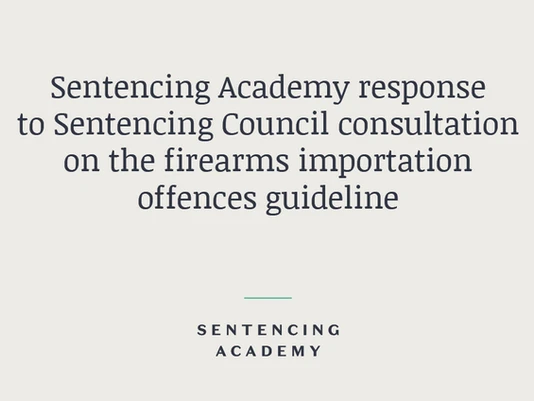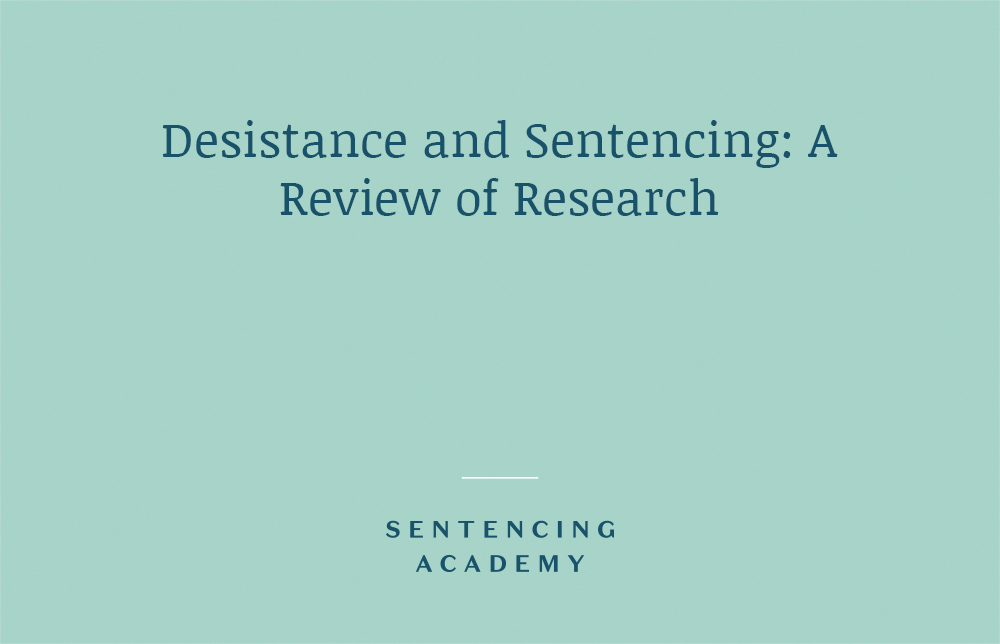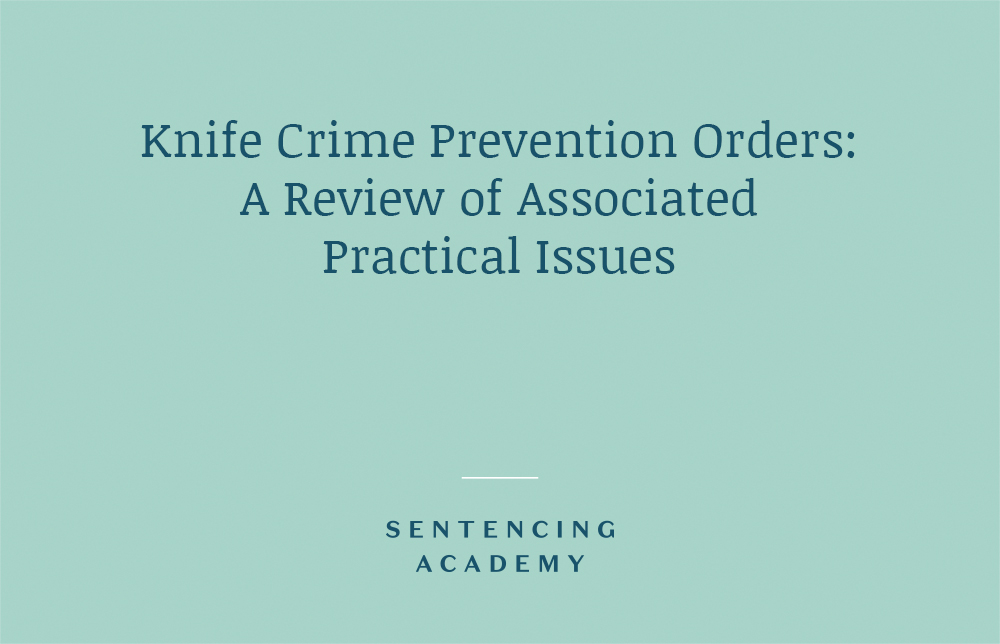Coercive Control as Mitigation at Sentencing

By Professor Vanessa Bettinson Read the full paper here: Coercive Control as Mitigation at Sentencing Executive Summary: • Coercive control is a recognised form of domestic abuse under section 1 of the Domestic Abuse Act 2021 and it is a criminal offence to engage in controlling or coercive behaviour in an intimate or family relationship […]
Kalisher/Sentencing Academy Internship

I am extremely pleased to have been awarded the Kalisher/Sentencing Academy Internship for this year. I have followed the work of both organisations for a number of years, and I am proud to represent both organisations and the ethos they stand for. I currently work as a Crown Court Caseworker at a practice specialising in […]
Multi-year funding from the Dawes Trust

The Sentencing Academy is pleased to announce that it has received additional multi-year funding from the Dawes Trust. We are very grateful to the Trust for its ongoing and future support of the Academy. Effective Sentencing In addition to our current funding this additional resource will permit the Academy to significantly expand its activities. More […]
Refusal to Attend Sentencing

Dr Gabrielle Watson In August 2023, former neonatal nurse, Lucy Letby, refused to attend her own sentencing hearing for the murders of seven babies and the attempted murders of another six entrusted to her care. Having also refused to attend via video link, she remained in the cells below Manchester Crown Court as bereaved family […]
Response to Sentencing Council consultation on the firearms importation offences guideline

The Sentencing Academy has submitted a response to the Sentencing Council’s consultation on the firearms importation offences guideline
Hello world!
Welcome to WordPress. This is your first post. Edit or delete it, then start writing!
Mental Health Awareness

As part of Mental Health Awareness Week, we would like to highlight an Issue paper that we shared last year by Ailbhe O’Loughlin looking at “Mental Disorder, Disability and Sentencing” which you may find of interest along with a literary review that we conducted for the Scottish Sentencing Council examining the issue of sentencing offenders […]
Desistance and Sentencing: A Review of Research

By Dr Annie Bunce • Desistance is the cessation of offending by those with previous patterns of criminal behaviour. Desistance is a gradual, non-linear process, not simply a one-off event. This paper reviews research on the desistance process and considers the implications of key findings for the sentencing process. • Research into offending […]
Violence Against Women and Girls (VAWG) and Sentencing Event – 29 March 2023 – Nottingham Law School

By Gavin Dingwall, Senior Research Fellow and Sarah McManus, Director of Operations The Sentencing Academy was delighted to host this event with Nottingham Trent University. Gavin Dingwall, Senior Research Fellow at the Academy, comments that ‘Nottingham Law School has recognised expertise in sentencing research and staff there have contributed to the international debate about the […]
Prison Overcrowding and Operation Safeguard: Resultant Changes to Sentencing Practice

By Georgia-Mae Chung Overcrowding in adult male prisons is a significant problem affecting the criminal justice system. The Government has responded to this by way of Operation Safeguard. On 30 November 2022, a statement was made in Parliament announcing the operation. The Ministry of Justice requested the use of 400 police cells to hold […]
Violence Against Women and Girls and Sentencing

A seminar in conjunction with Nottingham Law School. This in person seminar begins at 5:30pm and is taking place at: Room 1002 Chaucer Building, Nottingham Trent University, City Campus Goldsmith Street Nottingham NG1 5LT The speakers at the event are: Dr Felicity Gerry KC – International Criminal silk and […]
Knife Crime Prevention Orders: A Review of Associated Practical Issues

The Sentencing Academy has published a new paper by our Kalisher Trust intern, Georgia-Mae Chung, exploring the practical issues arising from the implementation of Knife Crime Prevention Orders (KCPOs). The key issues identified in this paper are: – Uncertainty about their usefulness and whether they fulfil their purpose. – The low threshold for implementation […]




